Race and Nation in Puerto Rican Folklore
CRITICAL CARIBBEAN STUDIES
Series Editors: Yolanda Martnez-San Miguel, Carter Mathes, and Kathleen Lpez
Editorial Board: Carlos U. Decena, Rutgers University, Alex Dupuy, Wesleyan University, Aisha Khan, New York University, April J. Mayes, Pomona College, Patricia Mohammed, University of West Indies, Martin Munro, Florida State University, F. Nick Nesbitt, Princeton University, Michelle Stephens, Rutgers University, Deborah Thomas, University of Pennsylvania, Lanny Thompson, University of Puerto Rico
Focused particularly in the twentieth and twenty-first centuries, although attentive to the context of earlier eras, this series encourages interdisciplinary approaches and methods and is open to scholarship in a variety of areas, including anthropology, cultural studies, diaspora and transnational studies, environmental studies, gender and sexuality studies, history, and sociology. The series pays particular attention to the four main research clusters of Critical Caribbean Studies at Rutgers University, where the coeditors serve as members of the executive board: Caribbean Critical Studies Theory and the Disciplines; Archipelagic Studies and Creolization; Caribbean Aesthetics, Poetics, and Politics; and Caribbean Colonialities.
Giselle Anatol, The Things That Fly in the Night: Female Vampires in Literature of the Circum-Caribbean and African Diaspora
Ala Reyes-Santos, Our Caribbean Kin: Race and Nation in the Neoliberal Antilles
Milagros Ricourt, The Dominican Racial Imaginary: Surveying the Landscape of Race and Nation in Hispaniola
Katherine A. Zien, Sovereign Acts: Performing Race, Space, and Belonging in Panama and the Canal Zone
Frances R. Botkin, Thieving Three-Fingered Jack: Transatlantic Tales of a Jamaican Outlaw, 17802015
Melissa A. Johnson, Becoming Creole: Nature and Race in Belize
Carlos Garrido Castellano, Beyond Representation in Contemporary Caribbean Art: Space, Politics, and the Public Sphere
Njelle W. Hamilton, Phonographic Memories: Popular Music and the Contemporary Caribbean Novel
Lia T. Bascomb, In Plenty and in Time of Need: Popular Culture and the Remapping of Barbadian Identity
Aliyah Khan, Far from Mecca: Globalizing the Muslim Caribbean
Rafael Ocasio, Race and Nation in Puerto Rican Folklore: Franz Boas and John Alden Mason in Porto Rico
Race and Nation in Puerto Rican Folklore
Franz Boas and John Alden Mason in Porto Rico
RAFAEL OCASIO
RUTGERS UNIVERSITY PRESS
NEW BRUNSWICK, CAMDEN, AND NEWARK, NEW JERSEY, AND LONDON
Library of Congress Cataloging-in-Publication Data
Names: Ocasio, Rafael, author.
Title: Race and nation in Puerto Rican folklore : Franz Boas and John Alden Mason in Porto Rico / Rafael Ocasio.
Description: New Brunswick, New Jersey : Rutgers University Press, [2020] | Series: Critical Caribbean studies | Includes bibliographical references and index.
Identifiers: LCCN 2019043696 | ISBN 9781978810211 (hardback) | ISBN 9781978810204 (paperback) | ISBN 9781978810235 (mobi) | ISBN 9781978810228 (epub) | ISBN 781978810242 (pdf)
Subjects: LCSH: Boas, Franz, 18581942TravelPuerto Rico. | Mason, John Alden, 18851967TravelPuerto Rico. | FolkloreStudy and teachingPuerto Rico History. | EthnologyPuerto RicoHistory. | Oral traditionPuerto Rico. | National characteristics, Puerto Rican. | Puerto RicansEthnic identity. | Puerto RicoRace relations. | Puerto RicoSocial life and customs. | Puerto Rico RelationsUnited States. | United StatesRelationsPuerto Rico.
Classification: LCC GR47.P8 O23 2020 | DDC 398.2097295dc23
LC record available at https://lccn.loc.gov/2019043696
A British Cataloging-in-Publication record for this book is available from the British Library.
Copyright 2020 by Rafael Ocasio
All rights reserved
No part of this book may be reproduced or utilized in any form or by any means, electronic or mechanical, or by any information storage and retrieval system, without written permission from the publisher. Please contact Rutgers University Press, 106 Somerset Street, New Brunswick, NJ 08901. The only exception to this prohibition is fair use as defined by U.S. copyright law.

The paper used in this publication meets the requirements of the American National Standard for Information SciencesPermanence of Paper for Printed Library Materials, ANSI Z39.481992.
www.rutgersuniversitypress.org
Manufactured in the United States of America
In memoriam
Judith Ortiz Cofer (19522016)
Whose literary mentorship inspired this book. This is my tribute to her passion to preserve Puerto Rican oral folklore through her creative fbulas criollas that she heard as a child in Hormigueros from her abuelas cuentos.
Contents
Race and Nation in Puerto Rican Folklore
Do you know what people mean when they speak of Our New Possessions? What are they? Where are they? Why are men, in the streets, in the shops, everywhere, talking about them? Why are the newspapers full of articles in regard to them? Why are lawmakers at the capital devoting so much time and attention to them? Can you tell?
Marian M. George, A Little Journey to Puerto Rico for Intermediate and Upper Grades (1900)
My principal work here is to collect the folk-lore and I am getting an enormous pile, with the cooperation of the department of education. I have a pile sixteen inches thick now and probably get as much more before I quit. What I am ever going to do with it I dont know.
John Alden Mason to Alfred L. Kroeber, January 21, 1915
When the signing of the Treaty of Paris on August 12, 1898, ended the Spanish-American War, large numbers of Americans flocked to Our Possessions, the newly acquired Caribbean islands of Cuba and Puerto Rico, and to the Philippines in the Pacific basin. Extensive press coverage had produced a record number of readers who for the first time eagerly followed a media-dominated war through reading newspapers (or looking at the pictures) more than ever before (Collin 107). In search of an exotic geography, the first American civilian explorers wrote a large number of diaries and travelogues that served as formal presentations of these military-occupied territories. Their views were not broad; they either focused on the islands as commercial wastelands with great financial potential for U.S. enterprises or took a paternalistic attitude in hopes that a rising twentieth-century American-made technology would turn the Spanish islands into a showcase of modernity.
In the early part of the twentieth century, technology also allowed for massive and complex projects abroad, such as the Panama Canal, which, as Katherine A. Zien stresses, was hailed as an example of social engineerings triumph over tropical degeneration (41). Along with Puerto Rico as part of the Spanish Islands Empire, the canal became a great symbol of the United States increasingly powerful geopolitical dominance. Indeed, Peter James Hudson has traced the intricate ways in which U.S. federal policies facilitated the emergence of American banking as a powerhouse in the Caribbean after the Spanish-American War: The War and State departments required fiscal agencies to support the infrastructure of US colonialism, and financial institutions were an important conduit of colonial policy and financial and commercial diplomacy (6).

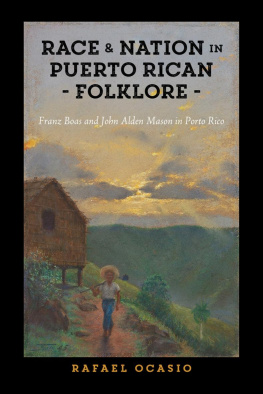
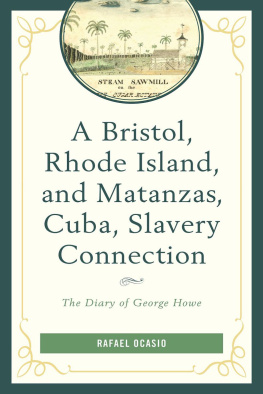


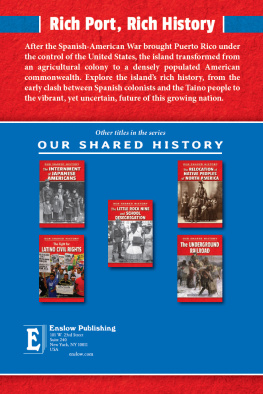
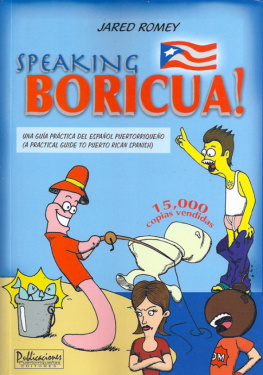
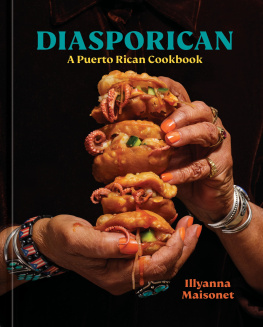

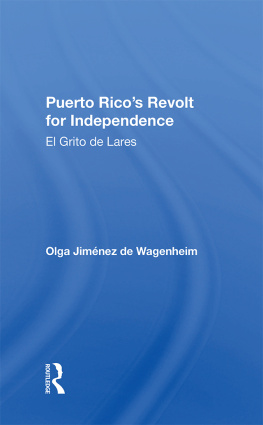
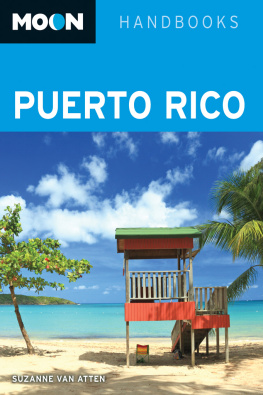

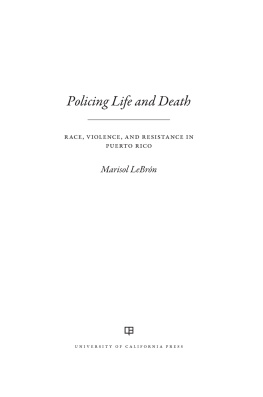


 The paper used in this publication meets the requirements of the American National Standard for Information SciencesPermanence of Paper for Printed Library Materials, ANSI Z39.481992.
The paper used in this publication meets the requirements of the American National Standard for Information SciencesPermanence of Paper for Printed Library Materials, ANSI Z39.481992.